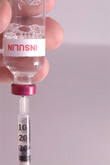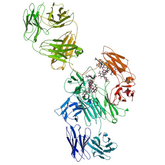Biosimilars
Bevacizumab biosimilar application submitted to EMA
Biotech giant Amgen and its partner Allergan announced on 2 December 2016 that they had submitted their application for approval for their proposed bevacizumab biosimilar (ABP 215) to the European Medicines Agency (EMA). The companies believe this submission is the first bevacizumab biosimilar application submitted to EMA.
Positive phase III results for Celltrion’s rituximab biosimilar
Phase III studies of a rituximab biosimilar from Celltrion have, according to the company, shown that the biosimilar is ‘equivalent’ to Roche’s MabThera/Rituxan (rituximab).
Mylan and Biocon submit trastuzumab biosimilar to FDA
Generics giant Mylan Pharmaceuticals (Mylan) and Indian biosimilars major Biocon announced on 8 November 2016 that they had submitted the marketing application for their proposed trastuzumab biosimilar (Myl-1401O) to the US Food and Drug Administration (FDA).
Positive results for etanercept and bevacizumab biosimilars
A phase III study of an etanercept biosimilar from Sandoz and a phase I study of a bevacizumab biosimilar from Boehringer Ingelheim have, according to the companies, shown the biosimilars to be ‘bioequivalent’ (bevacizumab) or have ‘equivalent’ safety and efficacy (etanercept) compared to their respective originator biologicals.
Biosimilar rituximab approved in South Korea
South Korean biotechnology company Celltrion announced on 17 November 2016 that the company had received approval for its rituximab biosimilar Truxima (CT-P10) from the Korean Ministry of Food and Drug Safety (MFDS, formerly the Korea Food and Drug Administration).
Biosimilars of abatacept
Last update: 28 April 2017
Abatacept is a modified antibody biological drug used to treat autoimmune diseases like rheumatoid arthritis, by interfering with the function of particular cells (T-cells) in the immune system. This action modifies the inflammation and immune activity which cause the symptoms of rheumatoid arthritis.
Mylan and Biocon submit insulin glargine biosimilar to EMA
Generics giant Mylan Pharmaceuticals (Mylan) and Indian biosimilars major Biocon announced on 3 November 2016 that the regulatory submission for their proposed insulin glargine biosimilar had been accepted for review by the European Medicines Agency (EMA).
Biosimilars help reduce the costs of cancer care
The costs for cancer drugs have been increasing significantly in countries around the world. With the arrival of new therapies, the future of cancer care is exciting. But how will healthcare systems be able to pay for such innovations? In their commentary, Goldstein and co-authors discuss how biosimilars could help alleviate such challenges [1].
Safety differences in clinical trials for biosimilars
Differences in safety evaluations and findings between clinical trials for biosimilars are highlighted by researchers from the University of Massachusetts, USA and Newcastle University in the UK. This they argue is a reason for clinical trial design for biosimilars to be standardized [1].
FDA accepts application for bevacizumab biosimilar
Biotech giant Amgen and its partner Allergan, announced on 15 November 2016 that the regulatory submission for its proposed bevacizumab biosimilar (ABP 215) had been accepted for review by the US Food and Drug Administration (FDA). The companies believe this submission is the first bevacizumab biosimilar application submitted to FDA.













